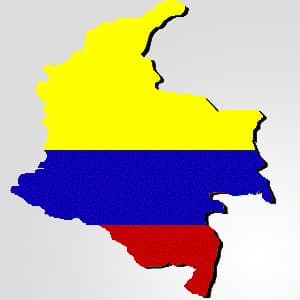A the first draft of a bill that would decriminalize the cultivation of illegal drug plants in Colombia, including coca, opium poppies, and marijuana, has been passed by its lower house of congress, according to Colombia Reports.
An incident in the country’s northeast that same underscored the need for a new approach in Colombia. Suspected leftist guerrillas attacked a police coca eradication team, leaving at least seven dead and 12 wounded. Police sources blamed fighters of the FARC, which has been engaged in an insurgency against the central government since 1964 and finances its operations at least in part through the coca and cocaine trade, for the attack in North Santander province.
Rep. Hugo Velazquez, who sponsored the bill, said the country cannot progress with “the failed drug policy pursued by Colombia and the United States.”
Since the adoption of Plan Colombia in 1999, the US has spent more than $7 billion to fight the drug war in Colombia. While the effort has had some success–the number of hectares cultivated is down from its peak early in the last decade–that success has come at a high cost, not only in dollars, but in lives lost in the conflict, hundreds of thousands of internal refugees, and environmental damage from spraying crops with herbicides.
Under current Colombian law, persons convicted of growing illicit drug crops face between four and 12 years in prison. Of the 105,000 people in prison in the country, some 23,000 are there for either growing or trafficking in drugs.
“The important thing is that we have the opportunity to listen to congressmen from drug producing regions and hear from different government officials, not just those in opposition [to the bill] with Minister of Justice Juan Carlos Esguerra,” Velazquez said, adding the drug crop production is an agricultural issue as well as a legal one.
While Colombian President Juan Manuel Santos has been a loud advocate of putting drug policy reform on the international agenda, he has been less interested in his own country leading the way. That position was reflected by Justice Minister Esguerra, who reiterated that the government is staunchly opposed to the bill.
The country is at a “turning point in the fight against drugs” and this is not the time to make policy changes, he said. “It’s not the time to anticipate a set of rules on this issue. This cannot work like the Lone Ranger,” he added.
But the bill remains alive.
Article From StoptheDrugWar.org — Creative Commons Licensing

























